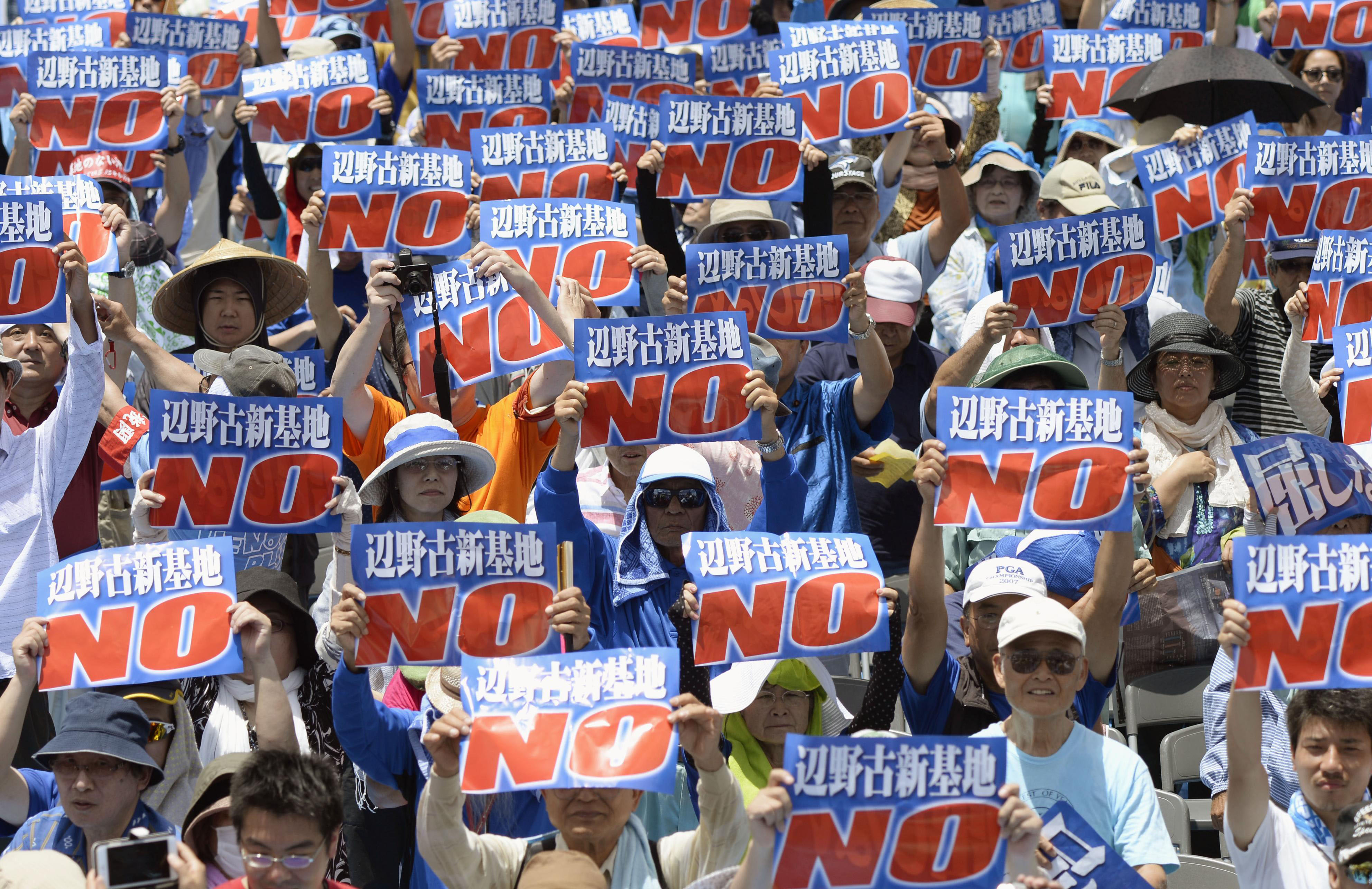Chie Mikami's new documentary, "Ikusabanu Todomi" (which loosely translates as "Bring the War to an End"), is about the protests against the new U.S. Marine Corps base in Henoko, Okinawa. Her previous film, "Hyoteki no Mura" ("The Targeted Village"), was about protests against the deployment of the controversial Osprey aircraft on the island.
Mikami was born in Okinawa but raised on Honshu, and returned to the archipelago as an adult to take a job as a reporter for Ryukyu Asahi Hoso in 1995. As she has stressed in promotional interviews, it is impossible to live on Okinawa "without thinking about the U.S. military" every day, because the bases affect everything. She estimates that three or four days a week during her 19 years at the TV station, she worked on base topics, but when she dispatched these reports to Tokyo, they were never picked up by other news shows. She quickly came to realize that "the top news in Okinawa is no news everywhere else." That's why she quit her job and started making documentaries she could distribute independently of the mainstream media.
This column has already discussed how the Okinawan media and the media from "Yamato" (what Okinawans call the rest of Japan) treat news about Okinawa differently. This disparity has been especially remarkable with regard to the coverage of Okinawan Gov. Takeshi Onaga's recent trip to the United States. Tokyo's mainstream press said Onaga's purpose was to convince powerful people in Washington that the Okinawan people did not want the Henoko base and its construction should be halted. Since work is continuing despite active protests by locals, Tokyo concluded the trip was a failure. However, the Okinawan press thinks it was a success. The difference has something to do with the Tokyo press corps' misinterpretation of Onaga's purpose, but it also points to its ignorance of American politics.



